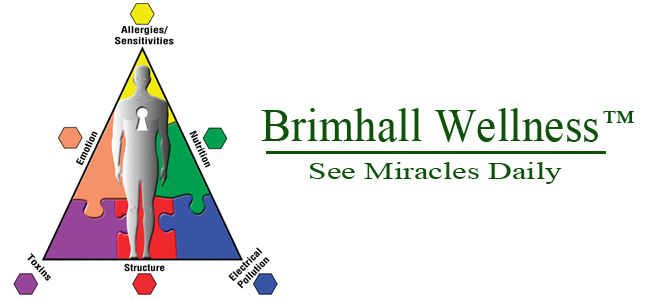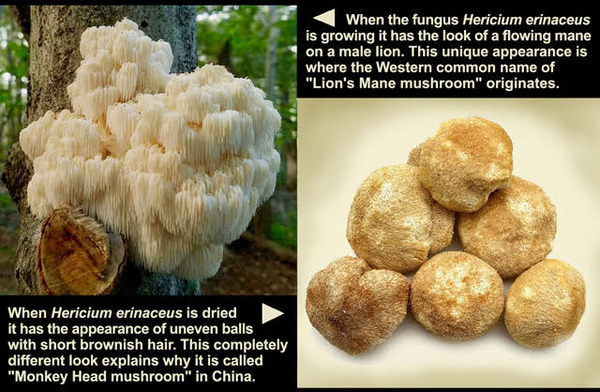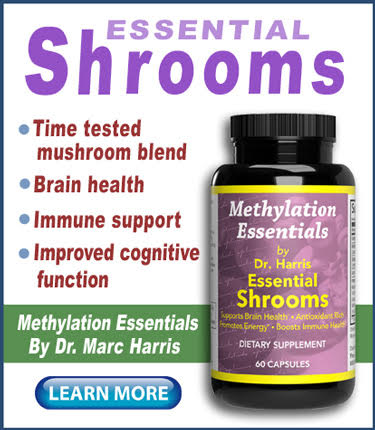 March 27, 2023 Puzzle Piece
March 27, 2023 Puzzle Piece
Australian study highlights cognitive benefits of Lion’s Mane—the ‘smart mushroom’
 A new study from Australia is adding to the growing body of research supporting the neuroprotective effects of Lion’s Mane mushrooms (Hericium erinaceus).
A new study from Australia is adding to the growing body of research supporting the neuroprotective effects of Lion’s Mane mushrooms (Hericium erinaceus).
According to the researchers, who conducted the study on mice, the
compounds isolated from Lion’s Mane have the ability to “stimulate
neuron projections, extending and connecting to other neurons.”
The mushroom’s ability to improve cognitive performance is now so widely
recognized that the distinct mushroom has earned itself the moniker
“the smart mushroom.”
The study was conducted at the University of Queensland in collaboration with researchers from Korea’s Gachon University and Chungbuk National University.
Previous studies attribute the cognitive-supporting activity to bioactive compounds in the mushroom that boost neurotrophins. Neurotrophins, in turn, promote the growth and survival of neurons.
The two compounds researchers attribute the neurotrophin-boosting activity to are hericenones and erinacines.
Brief history of the ‘smart mushroom’
While the benefits of Lion’s Mane are still being debated in the West, in Asian countries the practitioners of Traditional Chinese Medicine have
been administering it medicinally for hundreds of years. The fungus
grows on old or dead broadleaf trees, and it is used for food as well as
medicine. The mushrooms are large, white and shaggy—resembling a lion’s
mane—as they grow.
In China, Lion’s Mane is called hóu tóu gu (“monkey head mushroom”). In Japan it is called yamabushitake (“mountain monk mushroom”).
Lion’s Mane has been used in the traditional medicine systems of Korea,
China and Japan for centuries. It is prescribed by practitioners to
fortify the spleen, nourish the gut, and as an anti-inflammatory and
anti-cancer drug.
Lion’s mane is said to be nutritive to the five internal organs: liver,
lung, spleen, heart and kidney. It is also used in similar fashion to a
modern day multi-vitamin by promoting good digestion, general vigor and
strength.
Notwithstanding the centuries of medicinal use and observational
research in China, most of the research in Western countries have been
conducted on animals or in test tubes. However, there are some
noteworthy human studies do offer valuable insight.
A 2009 double-blind clinical trial assessing the oral administration of
“Lion’s Mane fruiting bodies” in elderly humans showed improvement in
subjects with mild cognitive impairment compared to age-matched
controls. Researchers measured improvements using the Revised Hasegawa Dementia Scale.
The group ingesting Lion’s Mane significantly increased their scores
during the 16-week treatment period, indicating improvement compared to
those not taking Lion’s Mane. Furthermore, researchers noted when
subjects stopped taking the Lion’s Mane supplements their scores began
to fall, reflecting scores similar to those that were
untreated—indicating the need for continued use.
Quoted
“The substantial historical record for the traditional use of
Lion’s Mane for chronic ailments, together with the results of studies
so far, suggest Hericium erinaceus is safe and has important potential as a neuroprotective and neurotrophic therapeutic agent in neurological conditions.”
“Neurological Activity of Lion’s Mane”
2017 White Paper issued by the National University of Natural Medicine in
Portland, Oregon
Download PDF here.
Another human study includes a 2020 study of people with mild
Alzheimer’s disease. This study found that supplementation with one gram
of Lion’s Mane mushroom daily for 49 weeks significantly improved
cognitive test scores compared with a placebo.
The support of brain function is just one area of study for Lion’s Mane.
Like the many ancient uses from the Orient, Lion’s Mane is also being
studied for regulation of blood sugar, lowering blood pressure,
minimizing inflammation, and protecting the liver and kidneys.
Current study
Citing previous studies that suggest that Lion’s Mane extract promotes nerve growth factor synthesis, the researchers stated their goal was to “determine whether the Hericium erinaceus compounds might also affect central neuronal function.”
The laboratory study evaluated the effects of Hericium erinaceus extracts on six-week-old male mice.
On days 28-30 of the study period, the mice performed a Y-maze test and
novel object tests. Immediately following the mice were euthanized and
their brains were preserved for biochemical and immunohistochemistry analysis.
“Using super-resolution microscopy, we found the mushroom extract and
its active components largely increase the size of growth cones, which
are particularly important for brain cells to sense their environment
and establish new connections with other neurons in the brain,” said
Professor Frederic Meunier of the Queensland Brain Institute.
The researchers further noted that the mice fed with Lion’s Mane “also
exhibited increased neurotrophin expression and downstream signaling,
resulting in significantly enhanced hippocampal memory… leading to
improved cognitive performance.”
The study was published in the Journal of Neurochemistry in January 2023.
Promising future?
Is it possible the pharmaceutical-saturated American consumer may one
day enjoy the medicinal benefits of Lion’s Main that consumers in Asian
countries already enjoy?
 Time
will tell. The pharmaceutical-medical establishment doesn’t like
competition from natural alternatives, and Americans are currently
limited to “nutritionally supporting” Lion’s Mane supplements. However,
based on the findings of the current study, at least one North American
company—Arev Life Sciences Global Corporation in Canada—just
announced that it would launch its own research to identify advanced
isolation technology for its proprietary Lion’s Mane extract.
Time
will tell. The pharmaceutical-medical establishment doesn’t like
competition from natural alternatives, and Americans are currently
limited to “nutritionally supporting” Lion’s Mane supplements. However,
based on the findings of the current study, at least one North American
company—Arev Life Sciences Global Corporation in Canada—just
announced that it would launch its own research to identify advanced
isolation technology for its proprietary Lion’s Mane extract.
The future may indeed be promising.
If you would like to receive the health benefits conveyed by Lion’s Mane mushrooms, consider supplementing with Essential Shrooms by Dr. Harris.
Visit the Optimal Health Systems product info page, or click the sidebar banner ad, to learn more.
– – –
Sources: Journal of Neurochemistry, University of Queensland, Wikipedia/Hericium erinaceus.
Yours in Health and Wellness,
OHS, Dr Marc Harris and Dr John Brimhall
(Only registered customers can rate)
There are no comments for this product.